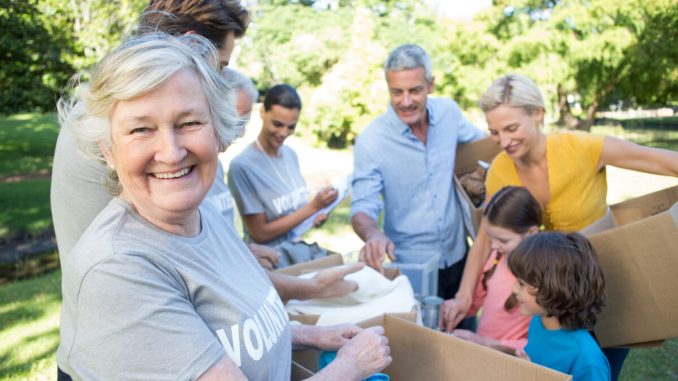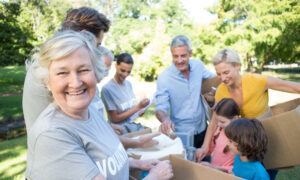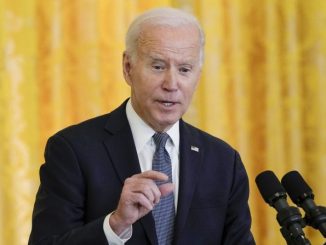

Several years ago, when I was teaching seminars to homeschool students in Asheville, North Carolina, most of my students participated in extracurricular activities. They had the opportunity to join a variety of homeschool sports teams: basketball, football, tennis, cross-country, and more. Organized as well were debate teams, chorales, theater groups, book clubs, an annual poetry night, and dances. Many of these young people also participated in Boy Scouts, 4-H, and youth groups at their churches.
Adult volunteers, mostly moms and dads, made these activities possible. They stepped up and gave of their time and energy to allow their children and others to have some fun and develop certain skills.
Here in Front Royal, Virginia, where I now live, many organizations are equally dependent on volunteers to remain open and fully functioning. My church, our public library, our schools, our county government offices, some of our fire departments, and our food pantries are just some of the local agencies always looking for such help.
And while they may not realize it, these volunteers are a part of an American tradition that goes back to the founding of our nation.
Uniquely American
In 1831, when the French observer Alexis de Tocqueville visited the United States, the volunteer spirit he found among Americans deeply impressed him. He later wrote in his now-classic “Democracy in America” about our ancestors’ penchant to form what he termed “associations” in hopes of improving the lives of those around them.
Throughout the 19th century, Americans continued to build such associations: temperance and abolitionist societies, organizations, many of them sponsored by churches, to help the destitute, community groups that founded schools, hospitals, libraries, fire departments, and literary clubs. Time and money donated by ordinary citizens made all these endeavors a reality.
The 20th century brought more formal, nationwide associations, especially with the establishment of such clubs as the Lions, the Kiwanis, Rotary, and dozens of other similar organizations. Founded by people with common interests to promote business, many of these groups became service organizations, again giving of their treasures and talents to help others.
Inspiration
Often we volunteer to help others because we ourselves love the enterprise. One retiree I know, Abe P., taught chess and reading to elementary school students into his early 80s because he got a kick out of helping kids. A neighbor and a young mother, Rebecca M., coaches the women’s cross-country team of our local college, hoping to pass along her love of the sport and to encourage female students to excel as athletes. In Asheville, the leader of my son’s Boy Scouts troop no longer had boys of his own in that troop, but he remained in that post because of his love of scouting.
I can easily think of a dozen or more other men and women who selflessly give of themselves to all sorts of causes. Some, as I say, offer their service for love of the endeavor—coaching a soccer team, tutoring students at the library. Others feel called to sacrifice time for a cause greater than themselves—working for a political candidate, helping the local cancer society raise funds, cleaning trash from the banks of a river twice a year.
Hidden Volunteers
Some volunteers don’t recognize themselves as volunteers.
The grandmother who babysits three little ones so her daughter may work, the girl who rides her ATV to our neighborhood mailbox to pick up not only her family’s mail but that of the handicapped woman living on a different street, the police officer who lives near me who this winter offered to shovel snow from the driveway of his elderly neighbor: all are volunteers. One young woman I know prepares Saturday lunches for the boys at a private school attended by her son. When I asked if she was doing any volunteer work these days—it was a trick question—she replied, “Not really.” Then she thought a moment and mentioned her gifts of service to the school.
The Boomerang Gift
In “Volunteerism and US Civil Society,” Susan Dreyfus reports on the mental and physical benefits of volunteering. She cites research from Carnegie Mellon University that concluded, “Older adults who volunteered for at least 200 hours per year decrease their risk of hypertension, or high blood pressure, by 40 percent.” She also points us to studies showing that volunteers feel more socially connected and less depressed, and experience a greater sense of purpose in their lives than those who don’t volunteer.
When we join such activities, we also enrich our lives through the other people we meet. The accountant who spends a couple of hours every other Saturday at her local food bank encounters in her co-workers and in those seeking assistance people she might never otherwise meet. This exposure to others from different backgrounds not only broadens our own perspective, but also strengthens the bonds of our society.
On the Wane?
While examining the impact of volunteers on our institutions and communities, Dreyfus also notes that volunteerism is declining in the 21st century. Although Americans still give away more of their time to various endeavors than do people in most other nations, the number of volunteers peaked around 2004, with some 28 percent of Americans claiming they had served in that capacity. Today that number has slipped to 25 percent, which may seem insignificant until we realize this figure means millions fewer volunteers.
And as Dreyfus points out, this waning of the volunteer spirit comes at a time when such people are needed more than ever. As our population grows, and as some organizations institutions feel the pressure of that growth, this loss of volunteers will have repercussions on the services these groups can provide.
What We Can Do
In her article, Dreyfus reminds us of these words spoken by President John F. Kennedy 60 years ago in his inaugural address: “Ask not what your country can do for you—ask what you can do for your country.”
When we give of ourselves, even in the smallest of ways, we are improving our country.
And we can encourage our young people to volunteer and so make their own contributions to society. Sometimes this may require some gentle prodding. A grandson informs me that at his school, the word “voluntold” is very much in vogue, meaning the teachers inform the students that they’re going to volunteer.
Whatever the case, when we volunteer our service and time, we are helping ourselves, our fellow human beings, our communities, and even our country.
A Personal Note
Sometimes writing articles like this one casts a light on my own life.
In my middle years, I did a great deal of volunteer work, mostly in support of activities that involved my children. I coached my 6-year-old daughter’s soccer team, though what I knew about that sport could have been written on a postcard. I taught Sunday school classes, helped run the church’s youth group, and for several years was a den leader in Cub Scouts.
In my later years, I’ve done far less. Most recently, I tutored four homeschooling pre-teens in composition and helped my daughter teach her children when she still lived here, but that’s about the extent of my service.
It’s time to heed my own advice. When the library here in town drops its mask requirements, I intend to volunteer there. I’ve looked up the volunteer page on the library’s website, reviewed the options, and believe that two hours of shelving books every week would introduce me to works never read and give me a much needed vacation from my daily routine.
Maybe I might even claim to be doing something, however minuscule, for my country.
Jeff Minick has four children and a growing platoon of grandchildren. For 20 years, he taught history, literature, and Latin to seminars of homeschooling students in Asheville, N.C. He is the author of two novels, “Amanda Bell” and “Dust on Their Wings,” and two works of nonfiction, “Learning as I Go” and “Movies Make the Man.” Today, he lives and writes in Front Royal, Va. See JeffMinick.com to follow his blog.





Be the first to comment